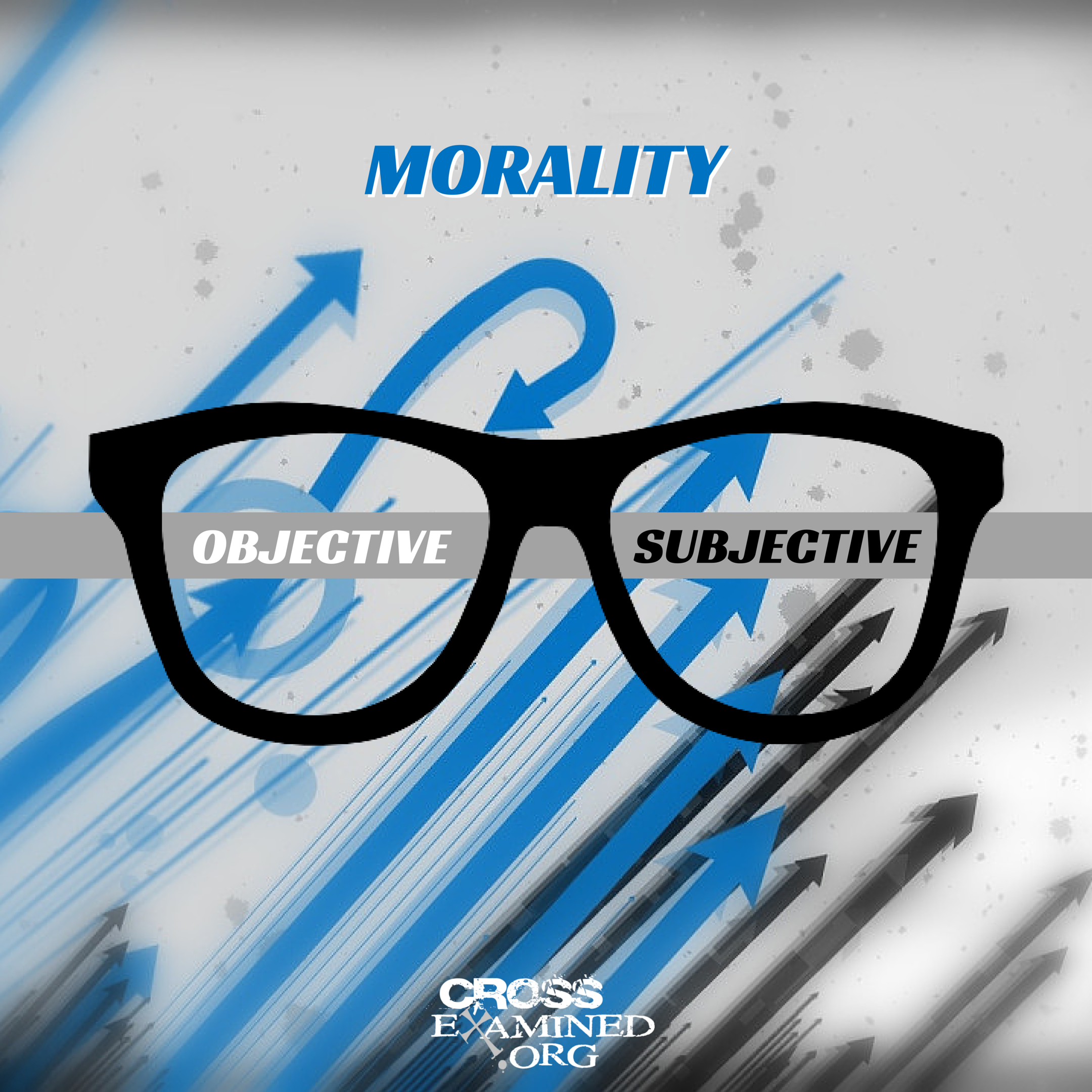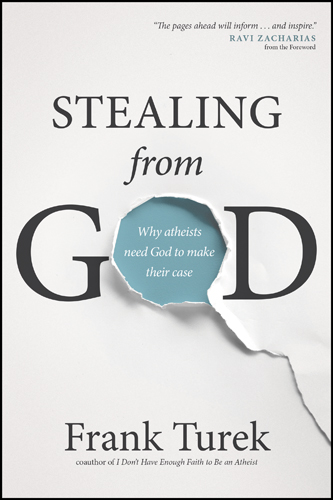Does objective truth apply to morality? This question has major ramifications depending on how you answer it, because it ultimately asks, “DOES GOD EXIST?” We can see this demonstrated through the use of logic in a deductive syllogism known as “The Moral Argument.”[1] Here it is:
1- If God does not exist, objective moral values and duties do not exist.
2- Objective moral values and duties exist.
3- Therefore, God exists.
To avoid this theistic conclusion, those committed to their atheistic presuppositions desperately seek to find a way to refute at least one of these premises. Many wind up stating that objective moral values and duties do not exist. By making this move, however, they affirm that there is nothing reallywrong with Hitler’s Holocaust, the molestation of young boys in the Penn State locker room by Jerry Sandusky, or the murderous actions of ISIS. Since rejecting premise (2) tacitly affirms the atrocities of these evil men, they feel the pressure to either find another way to ground objective morality, or become theists. Some atheists, such as Sam Harris, have attempted to find a logical way to ground objective morality in the “science of human flourishing,”[2] stating: “Whatever advances the flourishing of humanity is objectively good and whatever hinders human flourishing is objectively bad.”
Harris has failed on several accounts. For instance, even if (and that’s a very big “IF”) moral values could be grounded via this “science of human flourishing,” it would be powerless to explain why the flourishing of humans is objectively good. After all, in the movie, “The Matrix,” Agent Smith referred to the flourishing of humanity as a “virus,” and a “cancer of the planet.”[3] Is Agent Smith objectively wrong, or do we simply have differing subjective opinions? It would be circular reasoning to argue that the flourishing of humanity is objectively good because one assumes it is objectively good when humanity flourishes.
I’ve also heard it said that human flourishing is objectively bad for the earth and all other forms of life. A fellow human actually argued, “If all insects on earth disappeared, within fifty years all life on earth would end. If all human beings disappeared from the earth, within fifty years all (other) forms of life would flourish.”[4] So perhaps it is objectively bad for humans to flourish, at least from the perspective of “all other forms of life.” The question then becomes, why is it good for humanity to flourish, even if human flourishing hinders other forms of life?
Atheism cannot answer why the flourishing of humanity is objectively good. All the atheist can do is simply presuppose and assume it is. On the other hand, if God exists and created humanity on purpose and for the specific purpose to know, love, and enjoy a relationship with God for eternity, then it is objectively true (independent from human opinion) that it is objectively good (and right) for humanity to flourish.
Moreover, atheism is impotent to explain why we are obligated to fulfill or align our lives with any of these moral values that lead to human flourishing. If one were not to carry out any of these moral codes leading to human flourishing, and instead devoted their lives to kidnapping, rape, murder, etc., the worst they could be accused of is merely acting unfashionably, nothing more![5] The last time I checked, no one has made a case that it is objectively wrong to be considered “uncool,” or a “nerd” by the subjective opinion of the majority. Although it seems implausible that objective moral values can exist apart from God, it is logically impossible to ground objective moral duties if atheism is true.
On top of all of this, to make matters worse, this atheistic philosophy is ultimately self-refuting! Harris, as a naturalist (the view that only nature exists), holds to “scientific determinism,” which means he believes our thoughts and actions are causally determined by natural forces like physics, chemistry, and the initial conditions of the big bang. All of these things are outside of human control. Harris makes his view clear:
Free will is an illusion. Our wills are simply not of our own making. Thoughts and intentions emerge from background causes of which we are unaware and over which we exert no conscious control. We do not have the freedom we think we have. Free will is actually more than an illusion (or less), in that it cannot be made conceptually coherent. Either our wills are determined by prior causes and we are not responsible for them, or they are the product of chance and we are not responsible for them.[6]
Therefore, humans could never freely choose any action, including actions with supposed moral properties. Given these objections to the idea of a scientific foundation for an epistemology of objective morality, we must come to the conclusion that science cannot derive an ought from an is, and therefore, cannot tell us anything about how we must conduct our lives in any ethical or moral sense. If naturalistic atheism is true, we have no logical grounds of objective moral values, no logical grounds of objective duty to align our lives with any set of subjective code of ethics, and no ability to do otherwise since all would be determined by outside causal forces. Since ought implies can, and there is no ability to do otherwise in a cause and effect/determined universe (on atheistic naturalism), it follows that it is completely nonsensical for the naturalist to talk about how we ought to think, act, or behave.
Bottom line: If moral values and duties are objective, God must exist!
Stay reasonable my friends (Phil 4:5 ESV),
Tim Stratton
Visit Tim’s Website: Free Thinking Ministries
Click here to see the source site of this article
Notes:
[1] The Moral Argument: http://www.reasonablefaith.org/moral
[2] Sam Harris vs. William Lane Craig debate: https://youtu.be/yqaHXKLRKzg
[3] The Matrix, https://youtu.be/L5foZIKuEWQ
[4] This quote was attributed to Jonas Salk; however, I cannot find the source. Be that as it may, some people actually believe it is better for insects to flourish than it is for humans to flourish.
[5] William Lane Craig, http://www.reasonablefaith.org/navigating-sam-harris-the-moral-landscape
[6] Sam Harris, Free Will, (Free Press, New York, 2012), Page 5








